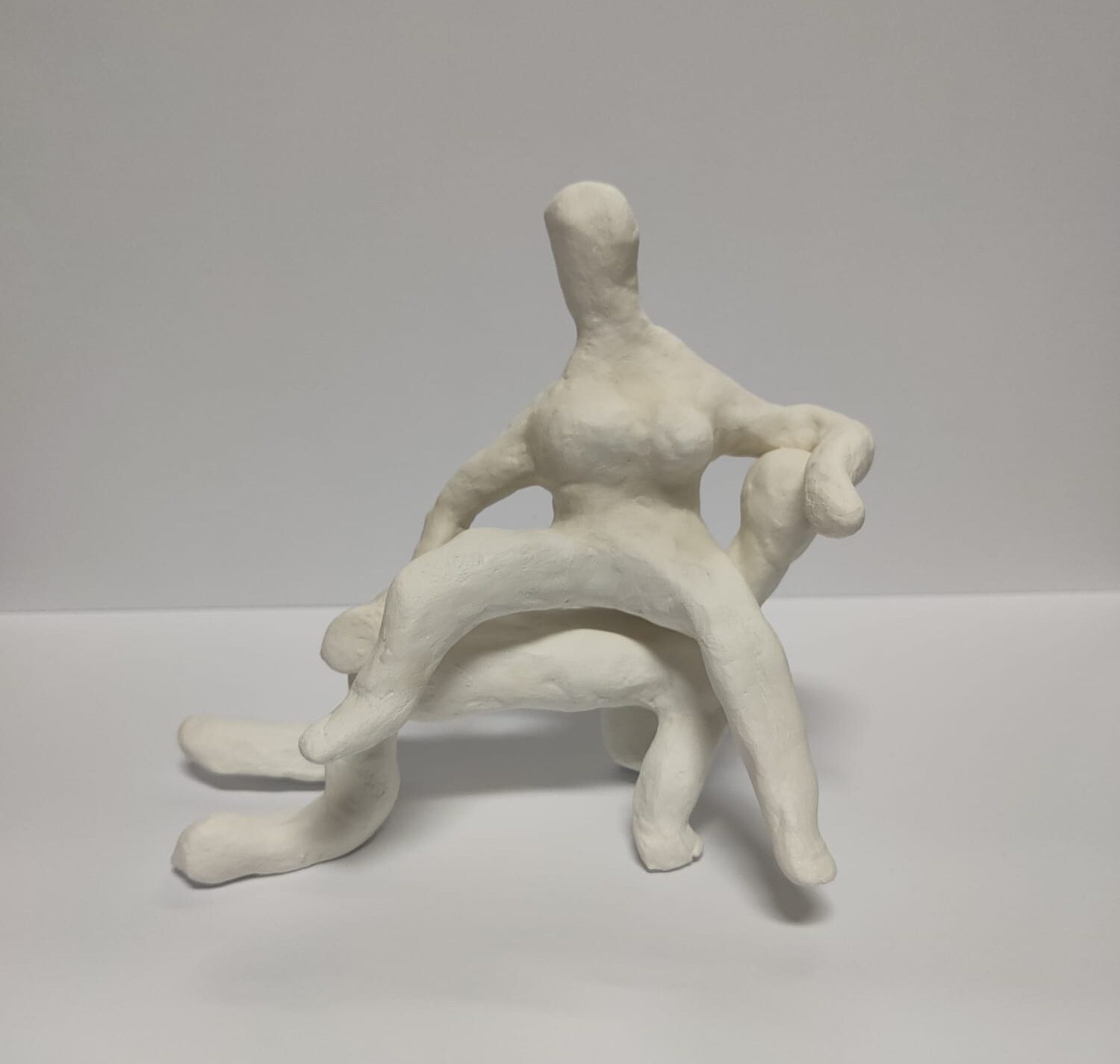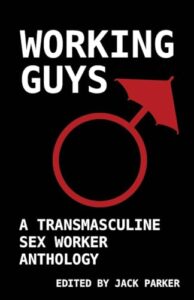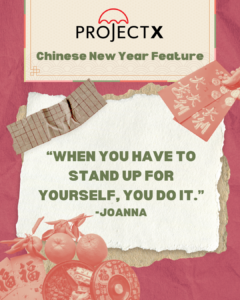Trigger Warning: Mental Health Challenges, Body Image

Sugar’s Shrine (Clay Sculpture by Sugar)
As part of Mental Health Awareness Month, I hoped to capture a sex worker’s journey in navigating mental health. In an industry with its own set of complexities and implications, I wondered how individuals regulate their emotional and mental states, specifically in the sociopolitical and cultural context of Singapore. The following are excerpts from my interview with Sugar, who shares generously about their raw and intimate struggles with mental health, doing sex work in Singapore and how art therapy has been a meaningful outlet for them. It has also been edited and reordered for the purposes of coherence and concision.
As you read, I would like to ask that you reserve your prejudices, keep an open mind and hold space for the sharings. The issues that were discussed are complex and deeply personal, hence, may be quite intense. If you feel overwhelmed or triggered as you read, we’d like to politely suggest that you take a break and/or seek support. If you would like support, resources have also been included at the end of this post.
Introduce yourself!
S: I’m Sugar. I am navigating through my life as a pro-domme.
What is mental health to you?
S: I think mental health is a very nebulous concept right? I think it’s an intersection between our social, psychosocial and emotional realm. How we experience and feel the world is our own subjective experience. It’s not for other people, even mental health professionals, to define or give judgement on our mental state or mental health.
What are some mental health challenges that you’ve met?
S: I think the nature of sex work makes one a lot more vulnerable to mental health challenges. One is the conflict between your identity and your emotional values. I think the greatest challenge in being in sex work is often balancing your values, ‘cause regardless of Asian or not I think in society we often view sex work as something morally wrong? And the onus is on sex workers themselves not [on] the paying men. One can jerk off to free porn without repercussions and if you’re part of the porn, even [if] it’s your boyfriend who uploaded it without your consent, you are the one who’s shamed, not the boyfriend, not the consumer, not the people who verified the uploading of these videos.
I think because what we do is so controversial…Why should it be? It’s the oldest profession (laughs) but at least for me I realised that we end up isolating ourselves a lot. We don’t even want to risk having people potentially find out. So before they can come close to us, we kinda push them away. It’s hard to share, be authentic and present with a friend when you’re constantly hiding your whole profession you know? 80% of your life and all the things that happen to you in your work that shapes your whole experience. I think even if we say we are really sex positive, feminists and all, it is still something I struggle with in balancing that kind of self-acceptance and self-judgements within myself. And with isolation I think a lot of mental health struggles just festers right? I feel everything gets amplified when you’re left alone, when you’re isolated especially because of this job (laughs).
Is there a specific value that you felt in conflict with while doing sex work? What were some emotions and feelings that came up while negotiating that?
S: I think for one, a number of my clients are married men, some with kids, [some] without. And being a feminist myself right? (laughs) I guess I just feel for the women on the other side a lot…I feel for the kids, but more so for the women. Initially when I started, I was pretty young. I was a teenager, and so I think I just- feeling like a homewrecker? Feeling really bad? Feeling like a cheat, feeling like a liar. I think what follows up is also with my friends, ‘cause if I can’t even be true to myself or even to my closest friends, like what kind of friend am I? And constantly balancing between being close enough to you to share and support each other emotionally but also distant enough such that you don’t find out [about my job]? Because I’m always afraid that you’re gonna reject me, someone’s gonna reject me when they find out this part of myself. I think also making friends with other people in this industry is hard, because in sex work you’re put in such huge risk right? So it’s hard to trust your colleagues.
And I mean I believe in polyamorous relationships. I don’t know whether it’s because of how I grew up in an environment where we all have broken families and I just no longer believe in the fact that men can be loyal? Of course, it also really affects my personal relationships. I feel like it’s crazy hard to have an intimate relationship with another man or person, being, when love and relationship, sex, intimacy is being treated as a token? When you assign an actual value to it that can be traded, removed, given away freely, that relationship with your body as well is very much affected. How you see your body, how you value your body beyond just function right?
I usually hear stories of sex workers finding community among sex workers where they they’re always there for each other but what’s different in your context?
I kinda wonder whether this sister sister thing is…they come together because of practical security reasons? Ultimately, when you’re fighting for such scarce resources, when you’re so vulnerable to external forces like police and all, I question [if] this [is] real sisterhood? Especially when you’re playing in this unfair system, where there’s no protection for you. Police have to pretend to do raids and you just have to catch like one sex worker or two every now and then and it’s like who is it to be caught right? Because this system is so unfair, that your loyalty, values and fairness is just totally lost in the waters because the system is not even a fair playing field to begin with. I think people who do sex work, we are self selected to be more- if you have survived, you really have to…in this age, be very focused and unapologetic about what you’re after, which is really money.
There’s just always this sense of competition, and I think this is further fueled by how a lot of this competition is tied to your intrinsic worth as a person, by your looks and all. Because it’s so personal, you take all this competition very personally. In the industry, you don’t know if you share challenges, they could’ve had the same client. If you share about your STIs, they could spread rumours about you (sighs). Yes, it’s really hard maintaining intimate relationships with people. I feel like in my life there’s so little security, and like no anchor. I feel like people usually work well with having certain anchors? Whether it’s family, or pets or a job, some stability and predictability which just doesn’t happen in sex work.
What does not being able to secure a stable community do to your mental health?
S: Sometimes I just feel like…I hope it’s just me that feels this way? But that you don’t really have much worth? I guess worth is tied to being wanted, having a sense of belonging, being accepted and loved by other people…that’s where you derive your sense of meaning and reality. When there isn’t that much of a community that I explicitly belong to, it feels like I can just leave this world anytime without a trace and no one would…just, it won’t really make a difference? Like no one might even notice my absence? There’s no one that looks forward to me at the end of the day, or end of the week, or like a monthly thing. I mean I’m so bad at texting like if I don’t reply anyone like they’ll “aw she’s just in her own world again”. They won’t have realised I died? When in sex work I feel like there are so many hotter girls who are cheaper, who are prettier, who are whatever else and I’m just a fantasy porn like in real life that can be easily replaced? There’s no belonging and no true loyalty. Doesn’t really matter if I disappear from the world one day (laughs).
What are some ways you’ve found to be useful in helping you cope with all these difficult emotions?
S: Frankly I feel like having had mental health issues since I was a kid, I have not- I have had good times which lasted a couple of months maybe close to a year? Mm…yea I’m not really managing my mental health really well (laughs). Definitely being in a community that supports you. A community is there right? Unlike people whom I feel can always leave at any point of time. Project X genuinely definitely helps. It adds value and tangible value, it is relative to your place in society ‘cause like Project X is an organisation, has support from all these partners and implicitly you feel like bits of society, people who have money and funds they do still support the health of sex workers? Being friends with people with Project X who are not sex workers,distracting myself (laughs) with sports, art therapy helps.
How has art therapy helped you?

Scattered Seeking by Sugar (Acrylic painting, A3 size)
S: This year I was in a low, I was just very numb. I knew I wasn’t in a great state but during the first art therapy [session], upon doing the artwork I felt like there was so much emotions that was released and I felt things again. I experienced this full portion of life that was shut away from me previously. Unlike talk therapy where you’re still kinda limited by a layer of conscience, when you do art it’s like your inner child right? And when I did that, the nature of art allowed this whole range of emotions to be unveiled. The art therapist, Michelle*, did help to guide me in uncovering that and that was quite an interesting experience. I think from then on because art therapy sessions were quite regular, it allowed me to be a lot more in touch with my own feelings and therefore, I felt like it was a safeguard. And that allowed me to make certain choices like difficult but necessary choices.
*Michelle Baraba (@oaza,therapy), is an art therapist who has been collaborating with Project X to provide art psychotherapy and talk therapy for sex workers.
Is there an instance or example of an experience where art therapy helped you to find a release?
S: Mm… (smiles) pretty much 80% of the time? I think part of having mental health issues is that sometimes my memory gets foggy. Especially when it comes to emotional issues, I can’t just- um yea I don’t remember them. How art therapy usually goes is we’ll be talking for a bit about personal issues then she’ll give a prompt: Express how, for example, this current feeling or this current dilemma looks like or feels like. If someone were to ask me straight on like how does this feel? I think [my response would be] a lot more filtered, a lot more safe and repressed because I say whatever I am ready to accept and I know I feel and think.

Smorgasbord by Sugar (Watercolour, A4 size)
But when you do art, especially when you work with mediums like watercolour where it’s a lot less intentional, a lot more free and abstract, you don’t really know where, how the water will flow. But at the end when you look at this whole artwork and you’re like, yea I think that that artwork says something, speaks to you and expresses some emotions. I think it has a certain kind of release in a very unconscious way. I think especially for me, I’m always stuck in my head (laughs) um just always bound by intellectualising love issues and never really feeling it, just thinking it and overthinking it, and thinking unnecessarily.
At the end of the session when Michelle brought out all [the] different art works and she laid it on the table, I think that was quite a poignant moment for me because I saw the initial, the first pieces, they were really dark and intense heavy strokes, directed, um, quite violent. More violent than I thought, I mean I looked so calm right? I thought I was calm (laughs). But towards the end, it was so dynamic, free, the movements, the colours were bright and radiant, playful. I think after each session, it feels as if all the layers of pain that you have taped up, layer by layer is slowly peeled away and then your raw emotions get to feel the ray of the sun, the warmth, the security. But also the rain and thunderstorms? But this time it feels safe.
Where are you in your journey of being authentic with others and navigating social situations?

Past, Present, Future Me by Sugar (Acrylic painting, A3 size)
S: I think it’s constantly a journey. Tryna identify beyond the work, the actions that I do, the intentions behind what I do, the vision I have. I think I can be authentic in that way without saying what I do specifically. Who am I? What am I? I am my perspectives, I am my experiences. What I derive from these experiences beyond what I do with my body…this is the most authentic and raw self I can present to others. I also justify by saying how…not saying this is not about tryna cheat someone, I think that’s where not being authentic is right? [It’s] about protecting myself because there are practical implications that this society and system structure just isn’t well-rounded enough to protect us and therefore this environment is just not conducive for me to share specific details about my work.
Would you say that your anxieties are primarily cause by the stigma surrounding sex work?
S: Yeah definitely. I think perhaps a good 90% of my anxiety comes from the stigma around it. Also fearing to go big because of the stigma, but yet not going big and being broke and also feeling bad and terrible and anxious about the future (laughs). I feel like no matter how successful or not successful I am, that because of the nature of the job and the stigma, it will always make me feel like I could be found at any point of time you know? Like if I were to meet this person, could this person identify me? Or in this context like Chinese New Year meetings or wedding dinners where you just don’t wanna be recognised? And that’s a bit scary and you just isolate yourself and always hide.
What would make you feel safe enough to share parts of yourself that you’re currently afraid to share?
S: One would be a systemic legalisation [of sex work], then slowly I think it might hopefully reduce stigma by public perception. I guess if my friends are explicitly advocates? And they make it explicitly known like I do feel more comfortable sharing with them even if we’re not that close. But I think the main concern is always that no matter how liberal and woke you are because of all the social stigma and the legal framework, whenever some- you have a fault, [you can] always use it against me and that makes me very guarded.

Sugar’s Shrine by Sugar (Clay Sculpture, 8cm x 15.5cm X 16.5cm)
From what I’ve gathered, mental health has been a struggle for you, sex work or not. Would you say that healing is a journey of ups and downs where there isn’t a particular final healing point?
S: I guess yeah. I feel like being the epitome of mental health isn’t necessarily one final state but it’s a zone. And within the zones, there will be ups and downs but me being down when I’m in that state doesn’t necessarily mean I’m not at the epitome of mental health? Yeah but I think it’s still a very nascent field, I feel like people use the word mental health everywhere right? I think there should be more articles and movement around mental health from everyone or a well-rounded view ‘cause my idea of mental health is gonna be very different from yours from the psych[ology] literature and everything else. And we should recognise the whole diversity of mental health and delve into different subsets and give them better understanding, holistically.
End of interview.
Sugar’s story reveals the need for a systemic decriminalisation and destigmatisation of sex work in Singapore and around the world. Yet, it also highlights the very real and damaging effects of social stigma on a sex worker’s daily life. From a lack of institutional protection to feeling unsafe in friendships, familial and romantic relationships, engaging in sex work often comes with a heavy burden of anxiety, stress and other mental health related issues.
Yet, even as they seek mental health support, sex workers have reported anticipating stigma and fearing judgement from healthcare professionals. When they have to question their safety in such spaces, it inevitably reduces the avenues through which sex workers may receive mental health support. Discrimination within healthcare spaces should not be tolerated – greater inclusivity, openness and empathy is required.
To live in constant fear of being outed as a sex worker or worst still, arrested by police, is undoubtedly distressing, and I would even argue, is against one’s human rights. It begs the question: Is engaging in sex work so “wrong” that individuals should be deprived of justice, protection and rights?
Resources:
Samaritans of Singapore: 1767
Email: [email protected]
24/7
AWARE’s Women’s Helpline: 1800-777-555
10am to 6pm, Mon to Fri
CHAT*: +65 6493 6500 / +65 6493 6501
Email: [email protected]
12pm-9pm, Tue to Sat (excluding public holidays)
*alternative ways to get help have been linked
National CARE Hotline: 1800-202-6868
8am to 8pm (access to this resource is not anonymous)
Project X (for sex workers): +65 9060 9906 (Call, Whatsapp, Telegram)
3pm to 11pm, Mon to Fri






